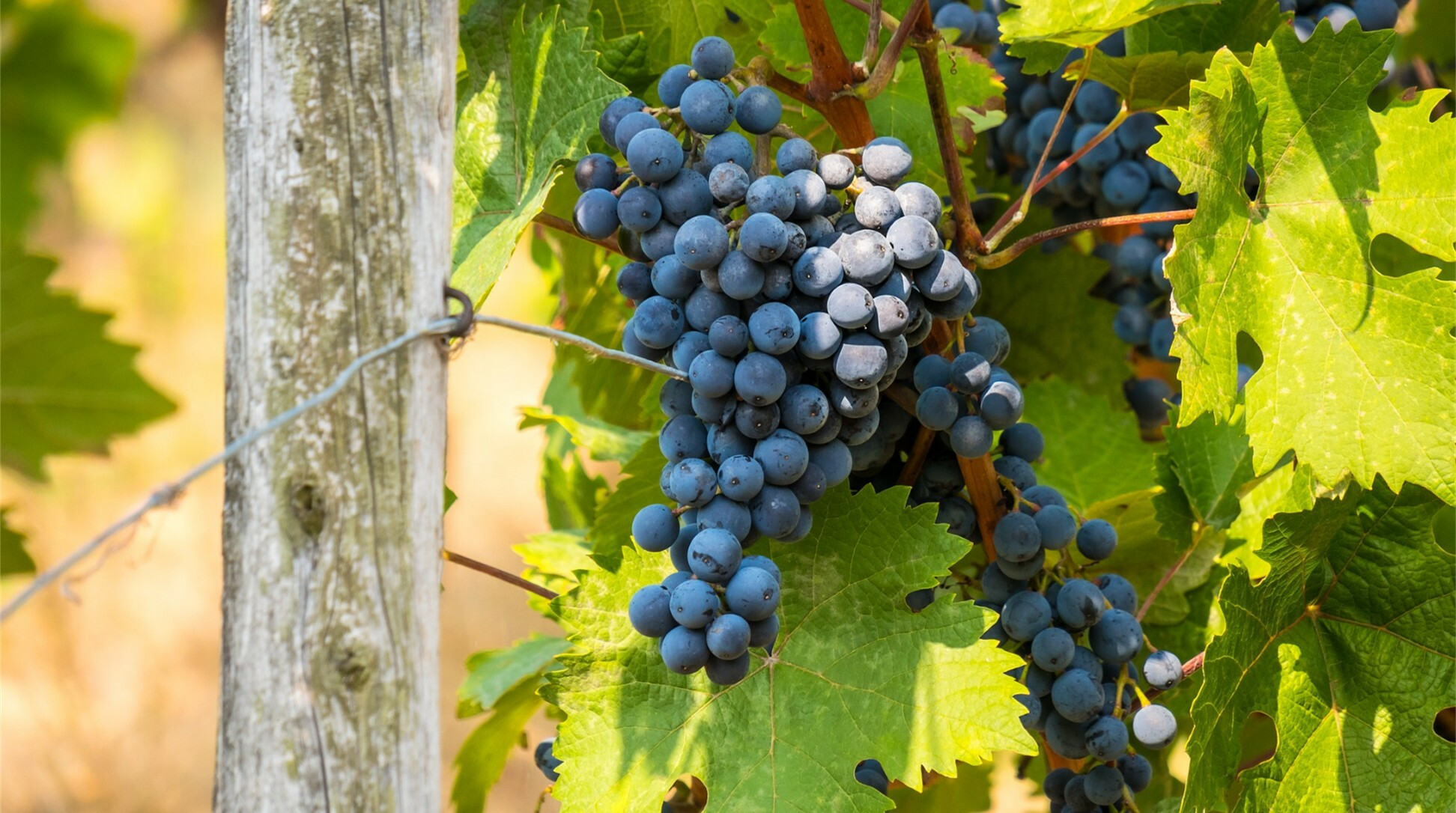Ecclesiastes 4:9-12: Friendship

“Hi Laura! You are my trellis!!” I found those curious words in my email in-box a few days ago. My friend explained that she had just listened to a message on John 15:4-5, which got her thinking about how a trellis offers support for a grapevine. With a trellis, branches may more effectively bear weight and weather storms as they stay connected to, and draw their vitality from, the vine. The trellis is analogous to those people in our lives who support us on our walk in Christ. She said, “Usually, I know when I’m taking things on my own shoulders because…[even though] I’m praying the whole time…I immediately want to reach out to you…[for] perspective and encouragement.”
Ecclesiastes 4:9-12 echoed loud and clear in my mind.
The trellis is not the Vine. It is not the source of life and vigor. It is not the wellspring from which fruit is borne. It is not our foundation nor our sustenance nor our potency. No, the substance of all that belongs to the Living God who made heaven and earth (John 15:1,4-5). Rather, the trellis is the network of God’s people, empowered by the Holy Spirit, who together provide structure and strength to the body of Christ. The trellis can “lift up his companion” when the burdens grow large and stand bound together with him when the winds of suffering and temptation rage strong (Ecclesiastes 4:10). The trellis is the Aaron and Hur that “strengthen the hands that are weak and the knees that are feeble” (Exodus 17:8-13; Hebrews 12:12-13). The trellis is the divinely-fashioned scaffolding that God can use to help His people grow and flourish (Ephesians 4:11-16; 1 Corinthians 12:1-13:13). When we come alongside one another in friendship, we are bound as a “cord of three strands” with our Father – a formidable force against the schemes of the “god of this world” (Ecclesiastes 4:12; 2 Corinthians 4:4; Ephesians 6:11-12).
Do we recognize what an exceptional gift faithful and faith-filled companions are? …those Jonathans, Elishas, Ruths, Barnabases, Nathans, and Jehoiadas God has brought into our lives? What a marvelous provision from our gracious and compassionate Abba. God’s love and truth flow through these rare and precious individuals to encourage us, build us up, and keep us on the rails (1 Thessalonians 5:11; 2 Timothy 4:2). They are those God-fearing, biblically-grounded, kindhearted, authentic persons who rejoice with us, weep with us, and don’t hesitate to get into the trenches with us (Romans 12:9-16; Philippians 2:3-7). “Ointment and perfume delight the heart, and the sweetness of a man’s friend gives delight by counsel of the soul” (Proverbs 27:9; Proverbs 27:17). Oh, how wonderfully true that is. …and it’s true even when those friends care enough to confront us with hard truths we need to hear for our own benefit (Proverbs 27:6; Psalm 141:5; Proverbs 25:11-12; Galatians 6:1-3). “A friend loves at all times” (Proverbs 17:17a).
But not all chums are good to be entwined with. Our companions can be rickety trellises at best…full-out calamities at worst. Sometimes motives are self-serving. Sometimes beliefs, values, attitudes, and behaviors are askew from God’s plumb line. Not everyone is pulling in the same direction as those who fear God and desire to walk in His ways. As His light-bearers, we are to live among, engage with, love, and serve the folks around us, regardless of who they are (Matthew 5:14-16; Luke 10:30-37; Romans 12:17-21). But God emphatically warns us to take great care who we bring into our inner circle. “Do not be deceived: ‘Bad company corrupts good morals’” (1 Corinthians 15:33; Matthew 10:16; John 17:13-19).
You’ve heard it said that one rotten apple spoils the whole barrel. A rotten apple releases large quantities of ethylene, which starts a chain reaction, insidiously affecting the flesh of all the apples around it. I think we’ve all seen this social metaphor in action. Perhaps we’ve even experienced its painful truth ourselves. Proverbs 13:20 says, “He who walks with wise men will be wise, but the companion of fools will suffer harm” (c.f., Psalm 1; 2 Corinthians 6:14; Galatians 5:7-9; Proverbs 22:24-25). Those aren’t empty words. Corrosion resulting from bad alliances is very real. The people with whom we closely associate have a profound effect on us over time.
Have you ever heard of Influencers? I couldn’t believe it when I first realized this was an actual “thing.” …as in, people do this as a profession! They develop some semblance of credibility in an area and amass a following who hangs on their every word. There are a whole lot of people out there who profess to be wise and claim to have our best interests in mind, but God admonishes us to be discerning and vigilant regarding who we allow to influence us – to be cautious of who we embrace as confidantes, counselors, and companions (Proverbs 12:26).
God gives us a poignant example from Israel’s sojourn in the wilderness (1 Corinthians 10:1-12; Numbers 11). “The rabble [mixed multitude] among them had greedy desires,” and the people bitterly complained about their conditions. You see, the Israelites had company in their exodus from Egypt. Exodus 12:38 says that lots of foreigners (Egyptians and others) – a “mixed multitude” (Ereb) – joined themselves with Israel to get out of plague-ravaged Dodge. I discovered a fascinating insight about that Hebrew word Ereb. It literally refers to the woof threads in a woven tapestry. Here’s how it works: The warp threads are the vertical ones that provide the foundational structure for the fabric – the strong threads that are held stationary, fixed, under tension on the loom. The woof threads are the ones that get interwoven, over and under, back and forth across the warp threads. The woof creates the pattern of the fabric. By definition, the woof is “all opposed to the warp” – i.e., literally going in a different direction (perpendicular) to the foundational threads. The woof runs cross-grain to the warp. That’s what the influential “mixed multitude” did when they incited the people to be greedy and complain against God and Moses. It was these cross-grain philosophies, opinions, and fleshly impulses that ended up influencing the people as a whole. The voices of the mixed multitude became louder in their ears and stronger in their hearts than the Lord’s voice. If you’ve ever woven with yarn on a cardboard loom, you know that the warp yarn needs to be really tight, secure, and unmoving. Otherwise, as you start to weave the woof yarn back and forth, the woof can cause the warp to gradually cave in toward the middle and ultimately spoil the tapestry. Israel found that out the hard way. Joshua and Caleb are the only ones in that entire generation who were allowed to enter the promised land because their warp remained sound (Numbers 32:11-12; 1 Corinthians 16:13-14).
We, too, live among an Ereb – a “mixed multitude” who largely does not know, acknowledge, believe in, or follow Jesus. We live in communities woven with brightly variegated worldviews, ideologies, and practices. This is why God commands, “See to it that no one takes you captive through philosophy and empty deception, according to the tradition of men, according to the elementary principles of the world, rather than according to Christ” (Colossians 2:8).
We need one another perhaps more than we realize. Steadfastness is buoyed when the body of Christ functions as it ought. “Let us hold fast the confession of our hope without wavering, for He who promised is faithful; and let us consider how to stimulate one another to love and good deeds, not forsaking our own assembling together, as is the habit of some, but encouraging one another; and all the more as you see the day drawing near” (Hebrews 10:23-25; Colossians 3:12-17; John 13:1-17; Hebrews 6:10).
Good trellises are indispensable for a healthy vineyard. Let us not underestimate the value of a genuine friend. …and let us not neglect to be one.





Login To Leave Comment